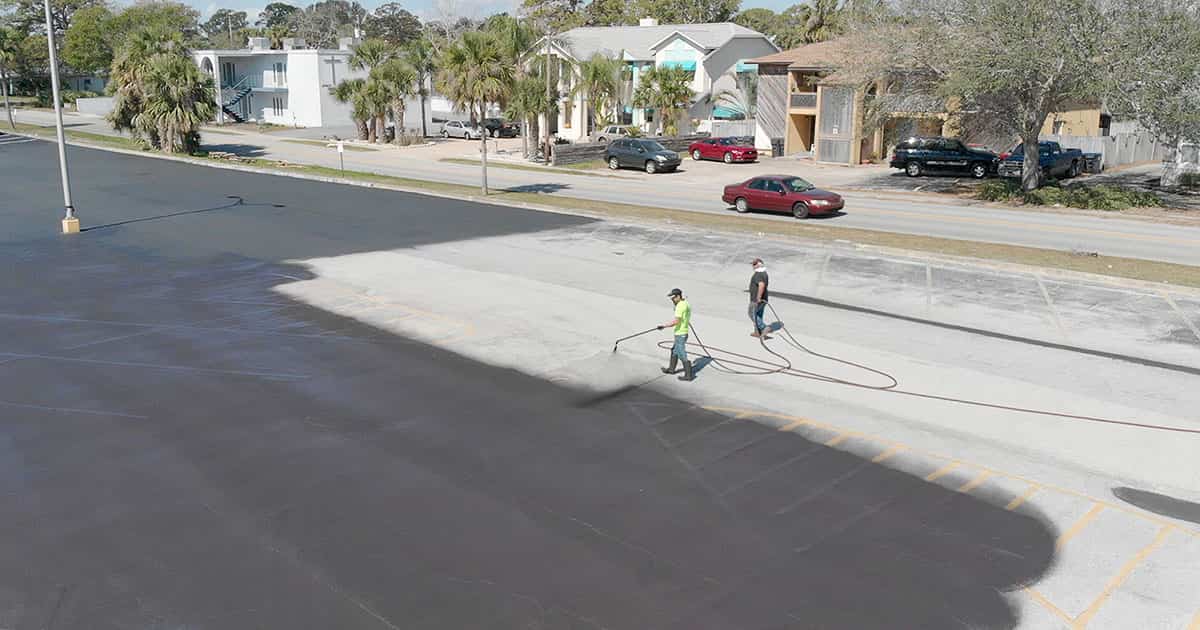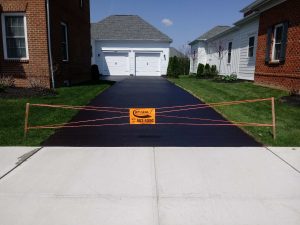Lasting Outcomes: Asphalt Patch Repair Via Precision Sealing
Lasting Outcomes: Asphalt Patch Repair Via Precision Sealing
Blog Article
Cold Mix Asphalt Vs. Hot Mix Asphalt: Which Is Right for You?

Composition Distinctions
Cold mix asphalt is produced by emulsifying the asphalt binder with water and an emulsifying agent before mixing it with accumulation. The warm mix asphalt production process includes heating up the accumulation and asphalt binder independently prior to combining them at the asphalt plant.
In addition, cool mix asphalt tends to be less thick and more adaptable than warm mix asphalt. This versatility makes it far better fit for locations with greater degrees of motion, such as driveways or roads with rush hour. On the other hand, hot mix asphalt is known for its high sturdiness and resistance to rutting and splitting, making it a favored option for freeways and high-traffic roadways where durability is vital.
Setup Process Variances
The procedure of setting up cold mix and warm mix asphalt displays noteworthy variations in their needs and treatments. Cold mix asphalt, being a more adaptable material, can be applied directly from the bag or container onto the crater or damaged location. It calls for very little preparation job, such as cleansing the area and condensing the cool blend with hand tools. This makes it a hassle-free option for fast and momentary solutions. On the other hand, warm mix asphalt demands an extra fancy installment procedure. It involves warming the mix to heats before laying it down on an appropriately prepared base. The prep work consists of condensing the base, applying a tack coat, and using heavy equipment like pavers and compactors for a sturdy and smooth surface. Because of the heating needs, hot mix asphalt setups are usually executed by experts with specific devices, ensuring a more structurally audio and permanent outcome.
Toughness and Longevity Elements
When taking into consideration asphalt choices, toughness and long life are crucial variables to review for enduring sidewalk efficiency. Hot mix asphalt (HMA) is known for its outstanding durability and long life.
In terms of durability, HMA commonly outmatches CMA due to its premium strength and resistance homes. HMA pavements have a longer service life, needing less constant learn this here now repair services and upkeep, which can translate to set you back financial savings in the future. In addition, HMA pavements are extra conveniently adjustable to fulfill certain job requirements, additionally boosting their toughness.
Expense Considerations
Considering the economic ramifications is a critical element when evaluating the selection in between warm mix asphalt (HMA) and cool mix asphalt (CMA) for pavement jobs. While the initial cost of hot mix asphalt is commonly more than that of cold mix asphalt, HMA frequently provides an extra affordable service in the long run due to its premium durability and longevity. HMA is recognized for its capacity to withstand hefty website traffic lots and extreme weather, decreasing the need for regular fixings and maintenance. On the other hand, cool mix asphalt is extra budget friendly upfront but may need more frequent patching and resurfacing, leading to higher maintenance costs with time.
In enhancement to product expenses, it's important to think about the expenses connected with setup and maintenance when contrasting HMA and CMA. Eventually, the choice between HMA and CMA need to take right into account not simply the preliminary cost yet additionally the lasting monetary ramifications to establish the most cost-efficient choice for the particular pavement project.
Environmental Effect Comparison
Comparison of the environmental impacts between hot mix asphalt (HMA) and cool mix asphalt (CMA) reveals distinctive distinctions in sustainability methods. HMA manufacturing needs heats, bring about enhanced energy intake and greenhouse gas emissions. The process additionally launches unstable organic compounds (VOCs) and dangerous air contaminants (HAPs) into the environment. In comparison, CMA is created and applied at reduced temperature levels, decreasing energy use and discharges substantially. The reduced manufacturing temperatures of CMA lead to reduced gas intake and reduced levels of carbon dioxide emissions, making it anonymous a much more ecologically friendly option.
Additionally, the usage of CMA typically involves reusing existing asphalt pavement, advertising source preservation and lowering the quantity of waste sent to land fills. This recycling aspect additionally enhances the sustainability of CMA compared to HMA. Generally, when thinking about the environmental impact, CMA becomes a much more eco sustainable selection as a result of its lower energy requirements, lowered exhausts, and the capacity for recycling existing products. By selecting CMA over HMA, road construction tasks can add positively to ecological preservation efforts.
Final Thought
To conclude, the option in between cold mix asphalt (CMA) and warm mix asphalt (HMA) relies on various elements such as structure, installation procedure, sturdiness, durability, expense, and ecological impact. asphalt repair. While CMA supplies a affordable and fast solution for small repairs, HMA ensures superior toughness and long life for hefty web traffic locations. Take into consideration these elements thoroughly to figure out which kind of asphalt is the right option for your paving needs

Considering the his response monetary effects is a critical element when evaluating the selection between hot mix asphalt (HMA) and cool mix asphalt (CMA) for pavement projects. While the initial expense of warm mix asphalt is generally higher than that of chilly mix asphalt, HMA usually gives a much more economical remedy in the long run due to its remarkable sturdiness and durability. cold mix asphalt.Contrast of the ecological impacts in between warm mix asphalt (HMA) and chilly mix asphalt (CMA) discloses distinctive differences in sustainability techniques.In conclusion, the selection between chilly mix asphalt (CMA) and warm mix asphalt (HMA) depends on various aspects such as composition, installation process, sturdiness, long life, expense, and ecological impact
Report this page